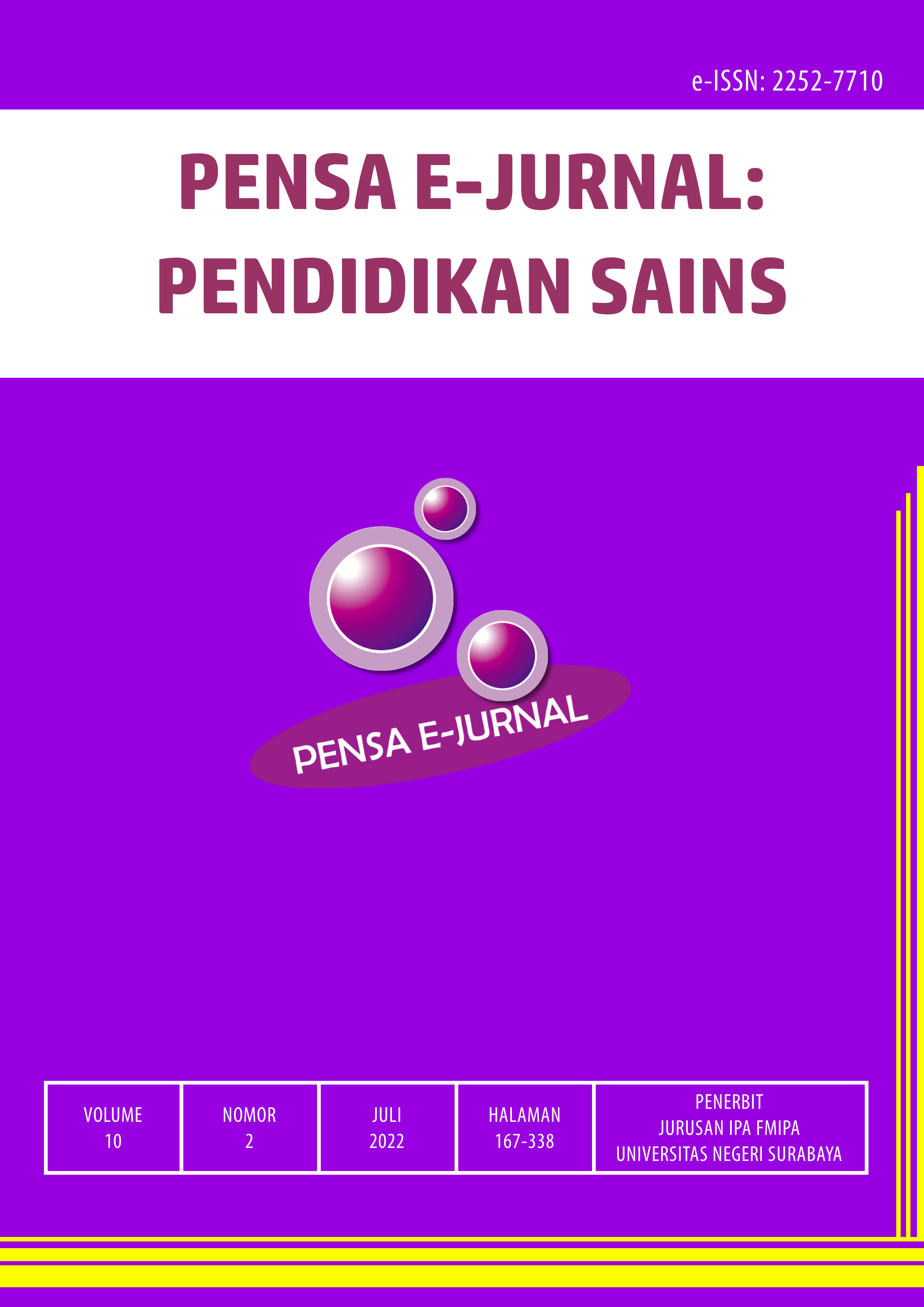ANALISIS KETERAMPILAN KOLABORASI SISWA SMP PADA PEMBELAJARAN IPA DI MASA PANDEMI COVID-19
DOI:
https://doi.org/10.26740/pensa.v10i2.45054Keywords:
Covid-19 pandemic, student collaboration skills, science learningAbstract
The purpose of this study was to describe the collaboration skills of junior high school students in science learning during the Covid-19 pandemic. The research method used is descriptive quantitative. The subjects in this study were 32 students of class IX-G SMP Negeri 34 Surabaya using purposive sampling technique. The data collection method used is observation in learning. Observation sheets were used to obtain data on collaboration skills of junior high school students in science learning during the Covid-19 pandemic. The observation sheet is filled in by providing a checklist on the descriptors for each collaboration skill indicator that appears. The conclusion of this research is the acquisition of the average percentage of collaboration skills indicators is 66%. The percentage results show that the collaboration skills had by junior high school students in science learning during the Covid-19 pandemic are quite collaborative following the benchmark reference assessment criteria. This is due to the adaptation of the Covid-19 pandemic, where previously learning was conducted online and is now face-to-face but is still limited.
Downloads
Downloads
Published
How to Cite
Issue
Section
 Abstract views: 2445
,
Abstract views: 2445
, PDF Downloads: 5181
PDF Downloads: 5181

















